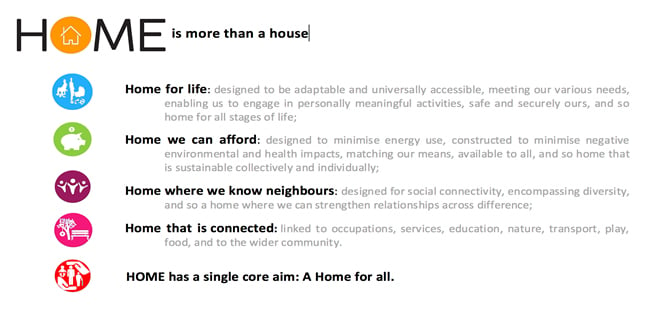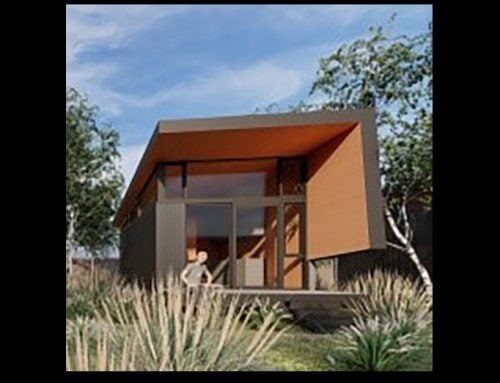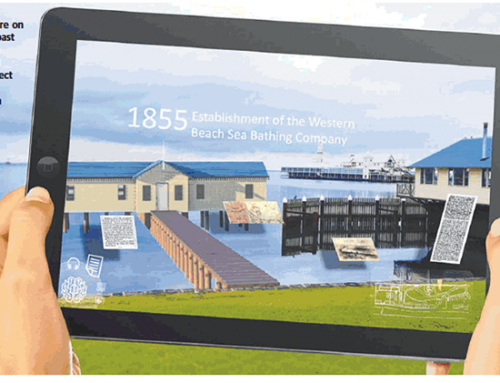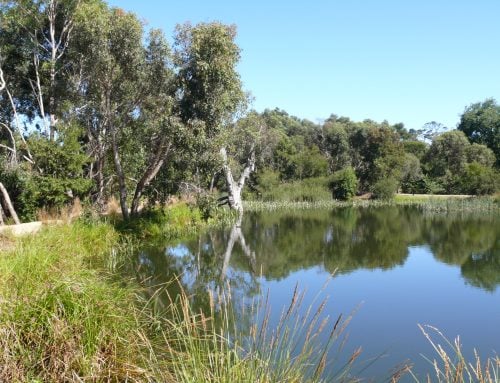HOME is a multidisciplinary research hub at Deakin, based at the School of Architecture and Built Environment, that addresses with local communities a failure to deliver well-designed, affordable, sustainable and connected housing for all. The work aims to inform better policy interventions and build better suburbs for many people that are excluded from the current system of providing housing and homes: low income earners, Indigenous Australians, women and children escaping family violence, many first home buyers, people with mental ill-health and/or a disability, and an ageing population unable to age in place. The HOME team consists of 30 researchers from across the University, providing a full range of expertise required for a comprehensive understanding of wicked housing problems.
HOME was conceived in 2016 after discussions between researchers in the School of Architecture and Built Environment and the School of Health & Social Development. In particular, Associate professor Richard Tucker and Dr Fiona Andrews sought ways to collaborate across the two disciplines to investigate the health and well-being impacts of the built environment. The research hoped to build on long-standing collaboration between the two schools via Susan Ang, Richard Tucker and Helen Larkin in the area of Universal Design and Occupational Therapy. Professor Louise Johnson, a Human Geographer from the Faculty of Arts and Education, joined the team to develop with Richard and Fiona a Deakin University Research Networks (DURN) application in 2017. When the Faculty of Business and Law joined, in the shape of Dr Nicole Johnston and Professor Dimovski, the team had expanded to 26 members from six schools, all with expertise across a range of housing research. HOME pitched to the DURN assessment panel, in February 2018, as an interdisciplinary group offering a rare disciplinary combination in housing research in Australia – diverse expertise located at the nexus of theory and practice in health, built environment, social enquiry, economics and law. This allows for the integration of perspectives, frameworks, epistemologies, methods, and theories; enabling a holistic understanding of the housing crisis beyond the scope of any one discipline. The bid was successful and earned HOME $100,000 start-up funding for 2018-19.
HOME’s simple aim: A Home for all
Our aim is a home for all that is safe, adaptable for all stages of life, matching our needs and so sustainable collectively and individually, where we can strengthen neighbourly relationship across difference, connected to services, facilities and the wider community.
Organisations with very different problems of complexity beyond their expertise can be assisted by HOME. Spanning health, the social sciences, business and the built environment, we offer a uniquely agile and adaptable research approach – collaboratively-designed solutions addressing the specific needs of their communities.
HOME: Approach
HOME extends the integral design approach of School of Architecture and Built Environment to multidisciplinary housing research informing transdisciplinary thinking and solutions to complex real-world problems. Thus, HOME combines systems- and design-thinking with action research expertise to facilitate engagement between stakeholder communities. A steering committee, with a sub-group of HOME researchers with key expertise relating to each project, will work with stakeholders to understand their specific needs, design and evaluate solutions.
HOME: Work
HOME work is focused on co-designing solutions to complex problems of affordable housing, homelessness, and social inclusion. HOME researchers apply systems thinking and action research to develop community-led, place-based solutions and innovative responses. The group includes researchers with expertise in design, architecture, health, homelessness, disability, accessibility and universal design, indigenous communities, human geography, place-making, anthropology, systems thinking, community engagement, policy, law, property, economics and the arts.
In 2018, HOME secured $275,000 of external research funding.
HOME is currently working on a range of projects assisting not-for profit organisations, local and state government and their communities to:
- Advance Geelong as a city designed so that it can be accessed, understood and used to the greatest extent possible by all people regardless of their age, size, ability or disability.
- Evaluate strategies for addressing homelessness;
- Inform social housing policy in Victoria’s regional cities;
- Identify obstacles to increasing the supply of well-deigned affordable housing in Victoria;
- Inform high-density housing design for families in Melbourne;
- Inform co-design processes for families with children with intellectual disability.
For more information please contact:
Associate Professor Richard Tucker PhD
Associate Head of School (Research)
Network co-leader of HOME
Email: [email protected]






